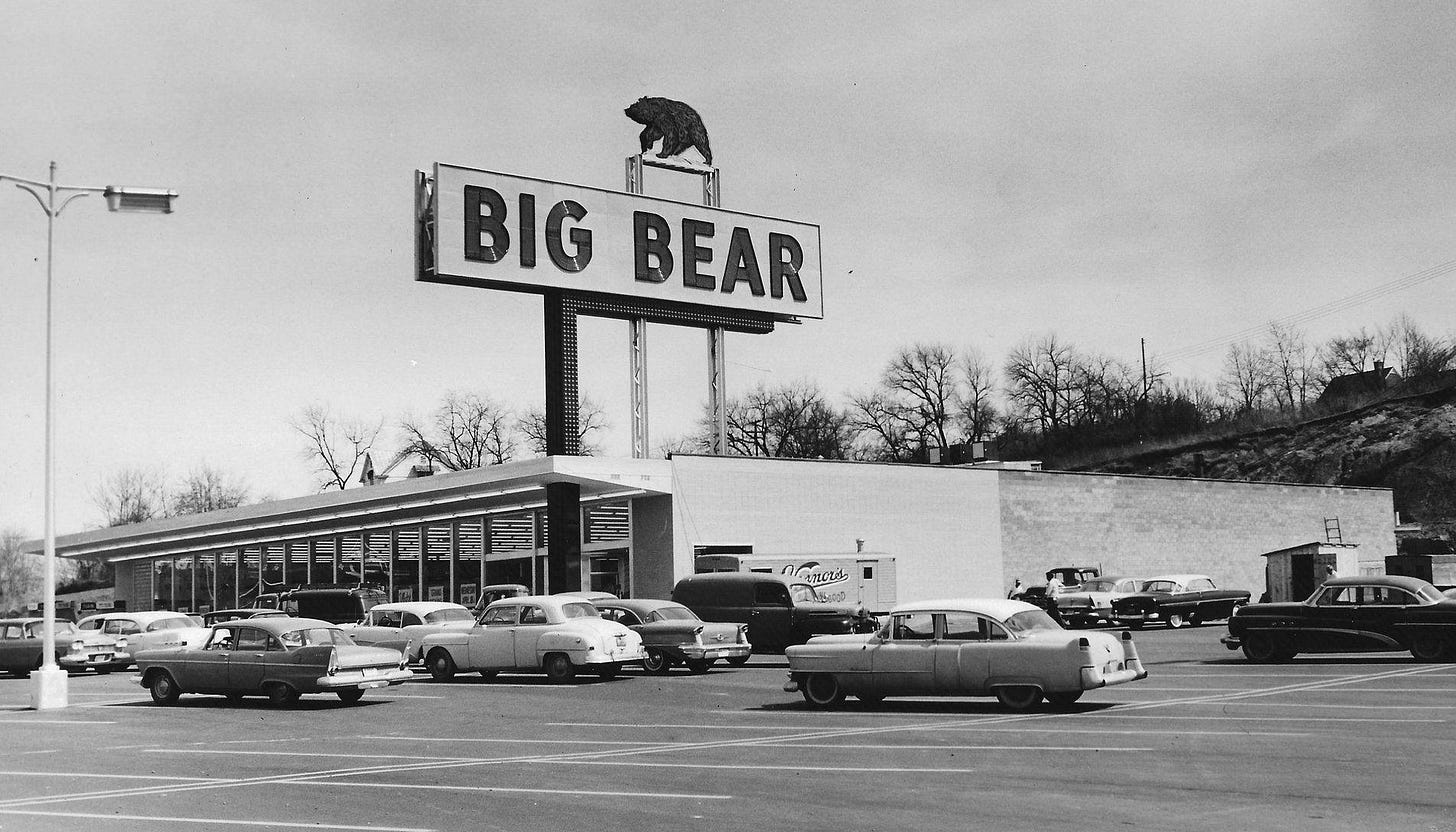
The occurrence of the same initial sound in adjacent or nearby words is called alliteration. It’s a literary device that’s often used in poetry. Think of “While I nodded, nearly napping, suddenly there came a tapping” (Edgar Allan Poe) or “We / Lurk late. We / Strike straight” (Gwendolyn Brooks).
Like rhyme, alliteration calls attention to particular words, making them easier to remember. That’s why it’s used in so many brand names (Coca-Cola, PayPal, Dunkin’ Donuts). Would I still remember the (now long-defunct) grocery store chain of my youth if it hadn’t been called Big Bear?1
It’s exactly because alliteration calls attention to itself that it shows up so often in headlines:
Mysterious Metal Monolith Disappears from Utah Desert
These are all deliberate uses of alliteration. But alas, when alliteration occurs in nonfiction prose, it’s usually inadvertent.
In regular (nonliterary) prose, alliteration can be distracting—like the ice cream truck tune playing a block away while you’re trapped in a boring work meeting on Zoom.
Often it’s distracting because it’s funny. Alliteration can accidentally introduce humor where playfulness isn’t expected (or appropriate). For example, here’s the first sentence of an otherwise serious news story about Facebook’s exempting certain high-profile users from its standard moderation rules:
Facebook’s independent Oversight Board is criticizing the company for a lack of transparency, finding it failed to be “fully forthcoming” regarding a policy for high-profile users.
I can’t help hearing Daffy Duck’s voice in my head: We found that Facebook failed to be fully forthcoming.
And hilarity is probably not the effect this journalist wanted to have on the reader.
As Sylvester the Cat would say, “Sufferin’ succotash!”
Rhyme may be even better for memorability, but as it happens, I didn’t grow up near a Piggly Wiggly or a Stop & Shop.




